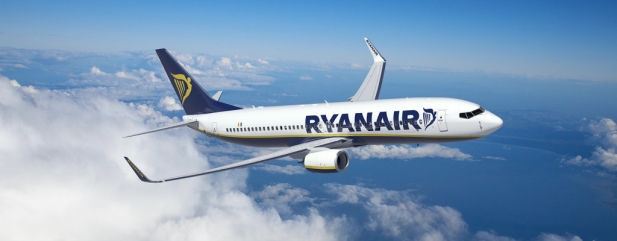Archived article
Please note that tax, investment, pension and ISA rules can change and the information and any views contained in this article may now be inaccurate.
Ryanair can fly higher

Budget airline Ryanair (RYA) appears to be an attractive investment proposition as investors are overestimating risks from additional costs and potential strike action.
Last year, Ryanair failed to properly plan pilots’ holiday leave, resulting in thousands of cancelled flights and a promise to splash out €100m annually to bump up pay.
But despite these issues UBS analyst Jarrod Castle says the shares have the potential to fly 18% higher to €18.65 over the next year.
POTENTIAL €3BN PAYOUT
Castle reckons the airline can return over €3bn to shareholders over the next three years, supported by strong cash generation.
In the half year to 30 September, Ryanair delivered over €935m in net cash and used €639m for share buybacks.
The airline has impressive earnings momentum. Pre-tax profit is anticipated to rise from €1.47bn to €1.6n in 2018. This is expected to grow further to €1.64bn in 2019.
CATALYSTS FOR GROWTH
Positive consumer sentiment, encouraging winter capacity growth and rising fares are all catalysts for the business.
UBS’ Castle dismisses concerns over slowing airline spend, highlighting a 5% rise in the average number of transactions per customer across the industry in the year to 30 September 2017.
Ryanair is still popular despite its problems in 2017 and in the third quarter of the year, its transaction share was up 11%
year-on-year.
To place this in context EasyJet (EZJ) and British Airways owner International Consolidated Airlines (IAG) declined by 4% and 7%, respectively.
Higher winter capacity could also provide an additional uplift in trading. It is anticipated to grow 6.5% on long haul routes and 5.6% for short haul destinations, according to UBS.
WHY RYANAIR MIGHT HAVE TO HIKE TICKET PRICES
In October, the airline reported ticket prices are expected to fall by between 4% and 6% in the year to 31 March 2018.
Ryanair has hedged 90% of its fuel at $49 per barrel and 45% of its fuel at $48 per barrel in the half year to 30 September 2018. While hedging will lock in lower prices for some of the airline’s fuel, a recent rally in prices could be a headwind.
The price of Brent crude oil currently stands at $69.70 per barrel, which is likely to push up costs on remaining fuel and could drive up fares from 2019 onwards.
However, Davy Research argues that Ryanair’s ex-fuel costs are still likely to be materially lower than its rivals, and this will help underpin future growth. (LMJ)
Important information:
These articles are provided by Shares magazine which is published by AJ Bell Media, a part of AJ Bell. Shares is not written by AJ Bell.
Shares is provided for your general information and use and is not a personal recommendation to invest. It is not intended to be relied upon by you in making or not making any investment decisions. The investments referred to in these articles will not be suitable for all investors. If in doubt please seek appropriate independent financial advice.
Investors acting on the information in these articles do so at their own risk and AJ Bell Media and its staff do not accept liability for losses suffered by investors as a result of their investment decisions.
Issue contents
Big News
- Dollar hits three-year low
- Premier plays down Batchelors sale chatter
- Melrose launches GKN charm offensive
- The winners and losers from Carillion’s demise
- JD says profit will be better than expected
- Savills CEO steps down after nearly 40 years at firm
- Sting in the tail for BP on Deepwater Horizon oil spill
- Dividend downgrades for Card Factory

 magazine
magazine










